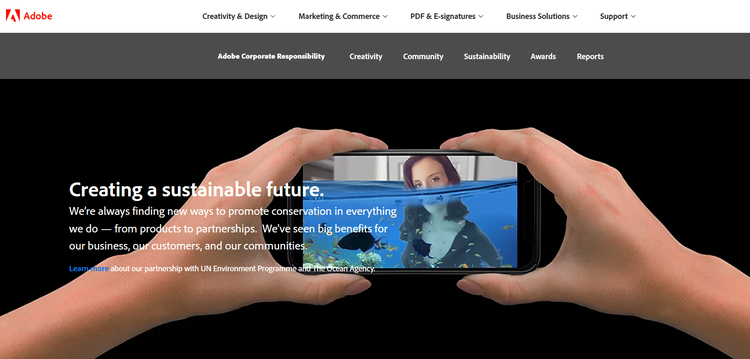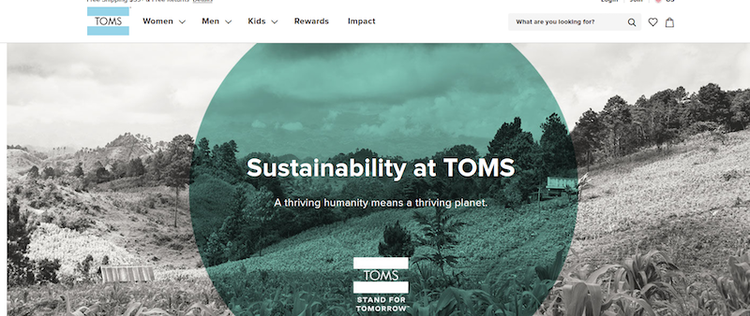Get Started With Social Entrepreneurship With These 7 Tips
Those who get into entrepreneurship have several paths to choose from if they want to do something other than build a giant company. They may strike out their own as a solopreneur or become an infopreneur and market their expertise. Or, they may choose to start a social entrepreneurship venture.
If you want to work for yourself but also want to make a positive impact on your world, social entrepreneurship may be for you.
Overview: What is social entrepreneurship?
Social entrepreneurship is a subcategory of entrepreneurship in which the business owner is seeking not only to make money but also to serve the broader social good. This may be due to an altruistic motive on the part of the entrepreneur, or it could be because the business is targeting a customer base that wants to buy products from socially responsible companies.
Either way, these companies seek to make the world a better place through their business in some way, such as by creating environmentally friendly products, serving disenfranchised communities, or getting involved in philanthropy.
3 examples of social entrepreneurship within popular companies
So what exactly does social entrepreneurship look like in practice? Here are three companies you may have heard of who are involved in this type of business approach.
1. Uncommon Goods
Uncommon Goods is a Brooklyn-based online retailer that was launched in 1999 and managed to survive the dot-com bubble. The company sells gifts, jewelry, art, accessories, and other things that are typically handmade by independent artists, often with recycled materials.
These gifts are created for a purpose and focused on sustainability, both socially -- using independent artists rather than cheap labor -- and environmentally -- using recycled and reclaimed materials.

Uncommon Goods features background on the people who create the products for transparency. Image source: Author
2. Adobe Systems
You've undoubtedly heard of Adobe, a Fortune 500 firm known for its widely used software, such as Acrobat and Photoshop. Adobe aims to align its business with environmental consciousness and a carbon-neutral focus. The company has a section on its website describing the ways it promotes conservation with its activities, such as its partnership with the UN Environment Programme and The Ocean Agency.

Adobe’s website prominently features details on how it works toward a sustainable world. Image source: Author
3. Toms
Toms sells shoes globally and donates a portion of its profits to charity. The shoes are made with sustainable approaches and the company features a fund dedicated to social entrepreneurship as a way to give back. Some of their initiatives include expanding the number of products made with earth-friendly materials, increasing the usage of sustainable cotton, and improving the company's carbon footprint every year.

Toms has a section on sustainability on their website. Image source: Author
7 tips to get started with social entrepreneurship
Getting started with social entrepreneurship carries many of the same challenges as starting any business. However, here are seven tips unique to starting a career in social entrepreneurship you should heed as well.
1. Choose what you want to sell first
First and foremost, you must find a product that drives you. Ask yourself what energizes you and what kind of impact you’d like to have on the world. Sometimes, the product bears little resemblance to the cause, but you can use the proceeds from the product to fund your social mission. Then, decide how you’re going to sell it. Will you need a brick-and-mortar store, or do you want to start an online business?
2. Determine the social cause you want to support
The product comes first -- after all, if no one wants what you have to sell, you won’t be able to support the social cause. Hopefully, the product and the social cause are the same -- like you’re a women entrepreneur selling consulting services to help other women break into entrepreneurship -- but if not, you’ll have to come up with the cause to support.
Perhaps you want to end hunger but you sell instructional videos to hobbyists. You could still dedicate a portion of those funds to the cause, and even advertise that as a selling point for your customers.
3. Develop a marketing approach
With a product and a cause settled, now you must create a marketing plan. Decide how you want to market the product or service, and remember that it must be in keeping with your mission. After all, if your social cause is increasing the use of renewable energy but you’re sending gasoline-chugging trucks all around town with your business name plastered all over it, that might send the wrong message.
Utilize mobile, social media, print, online, or whatever else makes the most sense based on your chosen product and social cause. Consider internal or external marketing teams, and start small before you scale up -- it’s easy to be wasteful with money in marketing. Try things out and see what works, and use marketing software to collect data on how well these campaigns are working.
4. Hire socially conscious employees
A successful business is all about having the right people. If you can afford to hire staff, be selective and spend a lot of time evaluating and hiring talent. Ensure that they are as fired up about your cause as you are, which may prove more important than their qualifications. If feasible, work with external recruiters to free up time and widen your net. If you find the right person, all that extra time and expense will be worth it.
5. Consider cash flow
All firms need to keep a close eye on cash flow, and a socially conscious firm is no different. Ensure you have enough cash flow so that you can meet payroll and cover other costs before you carve out enough for your social cause.
Get a good billing system in place using accounting software and consider hiring outside professionals to handle the numbers if you find it difficult. Nothing will derail a business faster than running into cash flow issues that cause employees to get paid late and prompt creditors to start calling.
6. Embrace failure
Like all entrepreneurial endeavors, yours is at risk of failure, or adversity at the very least. Don’t be afraid of setbacks and have a backup plan to provide that safety net if things go wrong.
Learn from mistakes and see them as an opportunity for growth, and always refine your business approach based on new information. Apply this to your social cause as well -- perhaps money should go toward Charity A instead of Charity B now that you’ve learned more about them.
7. Stay confident
A fire to succeed and to make the world a better place is one of the most powerful things you can bring to an entrepreneurial endeavor, so don’t lose that. Stay confident in your beliefs and be persistent in the face of adversity.
Believe in your social cause and business approach, and trust that the time and investment you’ve made will be worth it in the end. Reassess how you approach things, of course, but don’t lose faith in the original goal. Stay flexible, but remain vigilant.
Slow and steady wins the race, so patience is key
Most business ideas aren’t overnight successes. A social startup is the first step in a long journey. You must tap into your entrepreneurial mindset to gradually and patiently build a social business that struggles at first, then starts to make money, and then finally hits it big, possibly many years down the road.
It may mean that you have to stay in your day job a little while and do this on the side, but if you can achieve success, that extra work you put in each week will be worth it. Don’t be discouraged if it’s taking you longer than you thought -- it usually takes a while. Being successful as a social entrepreneur is like learning any skill, and it requires years of work to perfect. But that doesn’t mean you can’t enjoy the journey.
Alert: our top-rated cash back card now has 0% intro APR until 2025
This credit card is not just good – it’s so exceptional that our experts use it personally. It features a lengthy 0% intro APR period, a cash back rate of up to 5%, and all somehow for no annual fee! Click here to read our full review for free and apply in just 2 minutes.
Our Research Expert
We're firm believers in the Golden Rule, which is why editorial opinions are ours alone and have not been previously reviewed, approved, or endorsed by included advertisers. The Ascent does not cover all offers on the market. Editorial content from The Ascent is separate from The Motley Fool editorial content and is created by a different analyst team.
Related Articles
View All Articles